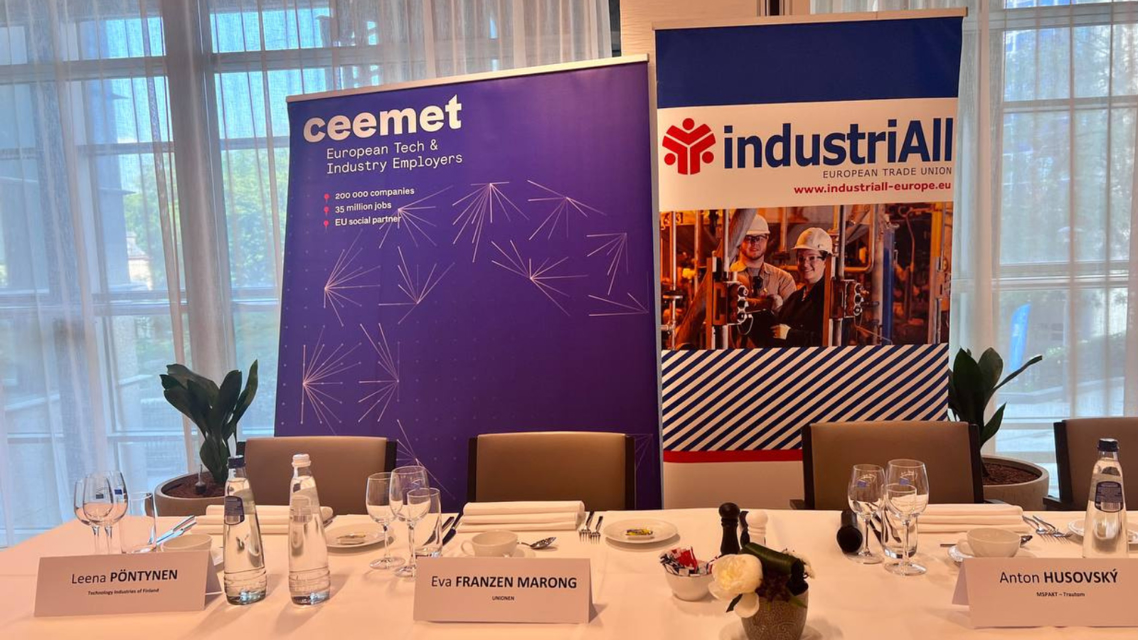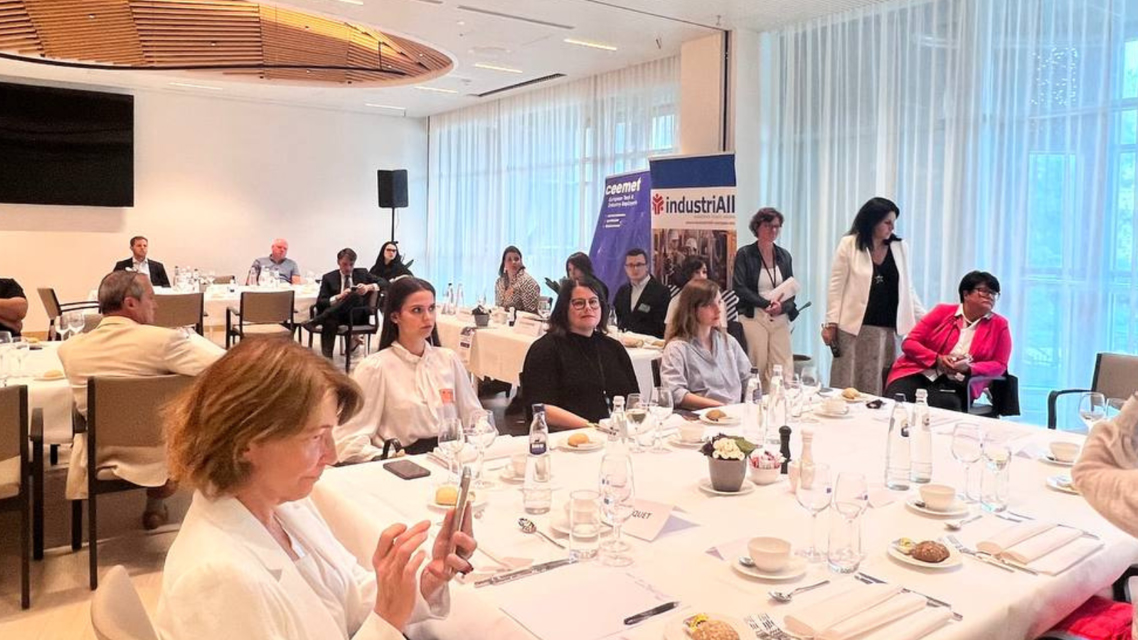Held in the European Parliament and co-hosted by MEPs Sabine Verheyen and Joâo Albuquerque, this debate gave panellists the opportunity to exchange on the different initiatives developed by the MET social partners in the field of upskilling & reskilling in the metal industry. It gathered education and training experts from employers’ and trade union associations, EU policymakers and other stakeholders active in the area of skills.
Ceemet and industriAll Europe have long been advocating for first-class vocational education and training (VET) and ambitious re-/upskilling strategies to support the MET industries in thriving and adapting to a fast-evolving world, as illustrated by our latest joint position on 'Boosting continuing vocational education & training in the MET industries'.
As stressed by Joâo Albuquerque (S&D), member of the Employment and Social Affairs Committee and shadow rapporteur of the resolution on the “European Years of Skills 2023”:
"The EYS presents a unique opportunity to give a much needed push in promoting people’s skills, competences and abilities. This will be decisive in addressing the twin transition and to provide Europeans with a clear path and the necessary instruments to adapt to a rapidly changing economy and work environment. Transversal and transferrable skills, high-levels of social rights and protection, social dialogue and the involvement of companies, public administration and social partners are key to tackle these transitions and leave no one behind.”
Against this background, the debate was the occasion for the social partners to showcase the initiatives that they have been developing at national and level in the area of skills, particularly concerning VET, the anticipation of skills, work-based learning approaches and apprenticeships in the MET industries.
The European Commission represented by Manuel Geleng, Director “Jobs & Skills” DG EMPL as well as Cedefop, represented by Sylvie Bousquet, reacted to the Social Partners interventions including on aspects such as : company visits, social media campaigns, anticipation of skills, supporting workers to up/re-skill etc. This gave EU policymakers a chance to learn about the Swedish national reform regarding security, transition and employment protection in the labour market that brings substantively strengthened support for job-to-job transitions and lifelong learning. Beyond that, the questions on how to anticipate the skills needed in the near future, and how to introduce soft skills at the workplace were also approached.
The twin transition is massively impacting jobs and skills needs in the MET industrial sector. As highlighted by Delphine Rudelli, Ceemet Director General :
“This is why that we must act all together in order to close the growing skills gap. Sectoral social partners have a key role to play, as they are closer to the needs of companies and employees and are thus best placed to identify for example, the future skills needs, to raise awareness about the added value of the training, to guide employees about the type of labour relevant market training they should undertake etc. As we heard today, there are plenty of very good social partner’ initiatives that bring forward practical, flexible and easy to implement solutions when it comes to handling the skills challenge. Hence, we continue to call on policy makers to involve social partners in the design and the deployment of all policies that impact on the workplace.”
The debate also brought forward the recommendations of industriAll Europe and Ceemet on how to best address the skills gap and reinforce the links between the worlds of education and the world of work in the context of multiple societal transitions.
Deputy General Secretary of industriAll Europe Isabelle Barthes highlighted:
“There is no silver bullet to loosen a tight labour market and tackle shortages. It requires a holistic approach, based on solid industrial policy, employment and social policies, active labour market policies, education and training policies, as well as collective bargaining. For industriAll Europe, the issue is not so much the skills shortages but rather the attractiveness of jobs and the number of workers with the right skills. Jobs must be made more attractive, and we need more investment into training. Continuous training must become a reality on the ground. As social partners, we can make it happen”
Ceemet and industriAll Europe reminded the European and national Policymakers that:
- an enabling framework to support continuous vocation education and training should be put in place and
- all types of EU funds for skills development should be mobilised and accessible in a user-friendly manner.Social partners are encouraged to make the most of collective bargaining and social dialogue on employment and skills planning and the corresponding training policies.
Co-hosted by Sabine Verheyen, MEPs ( EPP), Chair of the Culture & Education Committee the event gave her a good occasion to recall the key role played by social partners in tackling skills shortages:
" We have the chance to connect the dots between workforce shortages and training for the job market during this European Year of Skills and to push lifelong learning into the forefront of the European Union. And in order to ensure that the skills respond to the needs of the labor market, we have to accomplish this in collaboration with social partners, businesses, employees, and the next generation. Focusing this Year on individual skills is therefore an important step in responding to economic change in Europe and economic challenge Europe is facing."
Ceemet and IndustriAll Europe will now prepare a compilation of the social partners’ initiatives presented at the event. Both organisations will continue to seize the opportunities to make the voice of the MET social partners heard in future EU debates.

